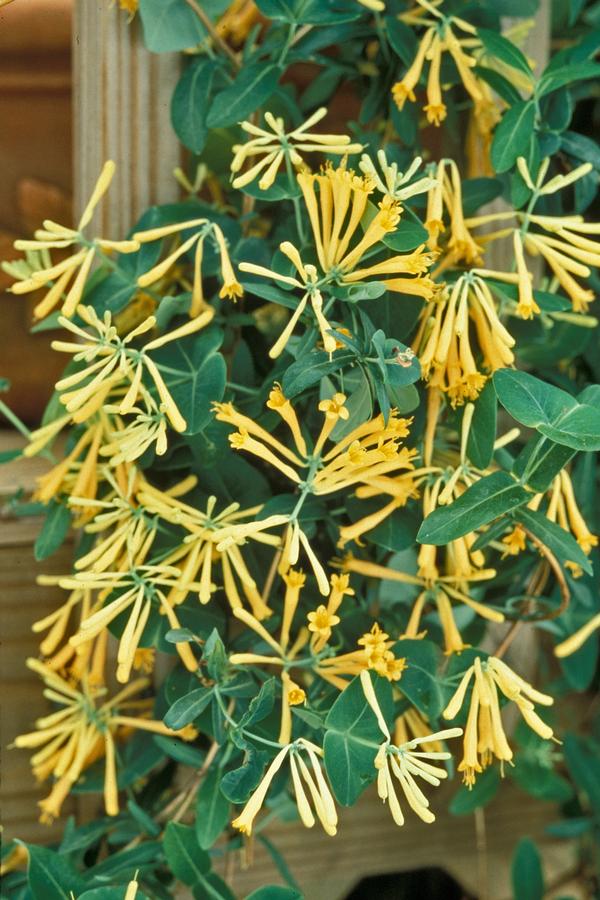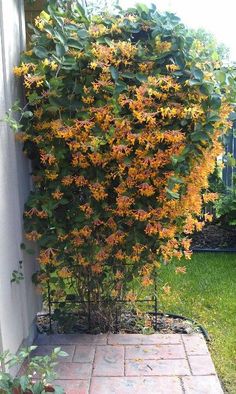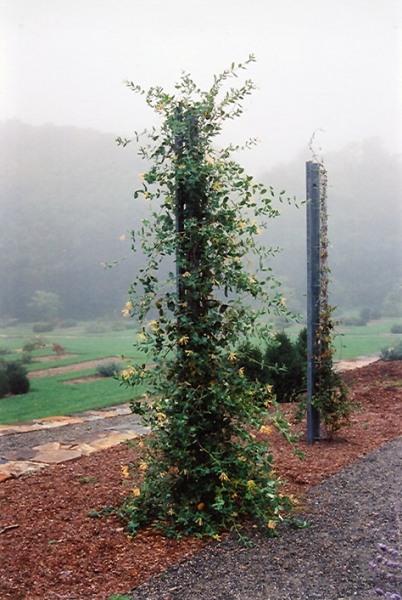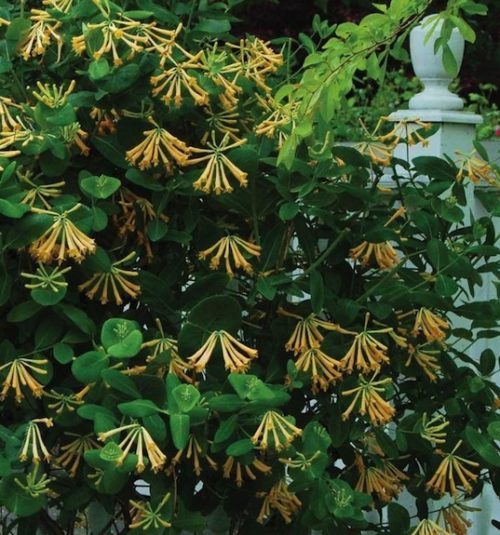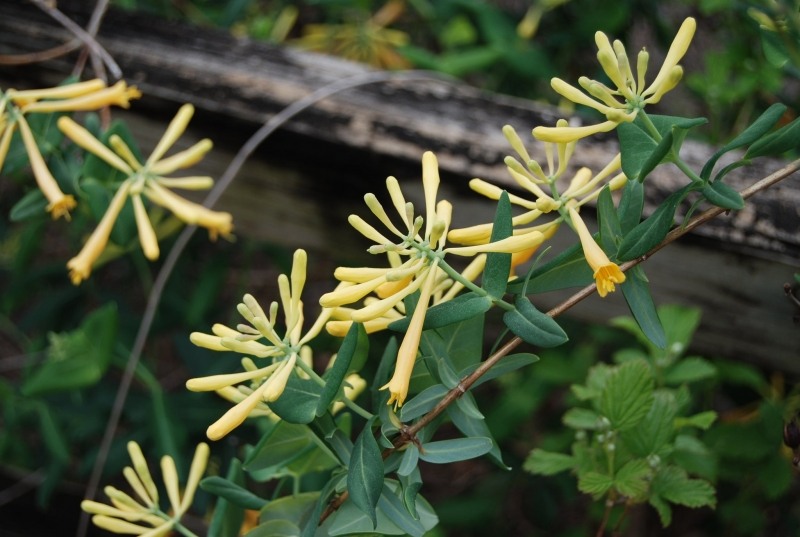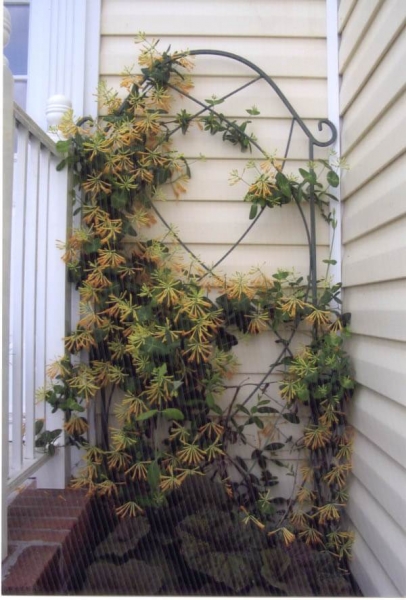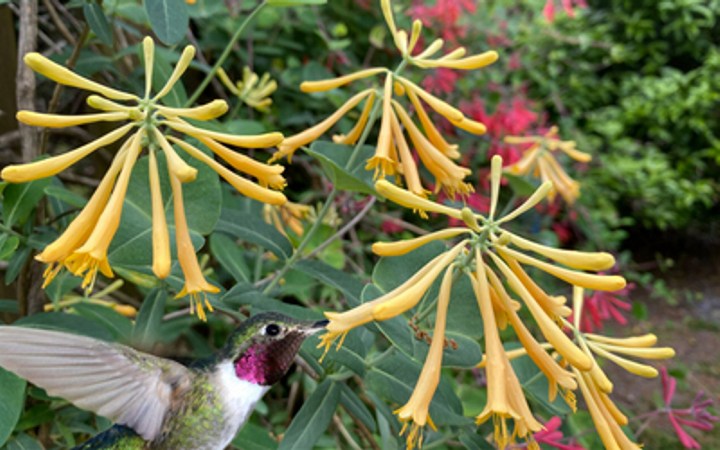John Clayton Yellow Honeysuckle Vine
| honeysuckle | vine |
It is a evergreen, perennial, flowering vine, see how the John clayton yellow honeysuckle vine looks like in the garden and landscape.
John Clayton Yellow Honeysuckle Vine is suitable for growing in USDA hardiness zones: 4a, 4b, 5a, 5b, 6a, 6b, 7a, 7b, 8a, 8b, 9a, 9b. Other winter zone scales for planting this honeysuckle are ANBG: 1, 2, 3; RHS: H7, H6, H5, H4, H3; PHZ: 5a, 5b, 6a, 6b, 7a, 7b, 8a, 8b, 9a.
Honeysuckle details
| Plant type | vine, berry, flowering | ||||||||
| Life cycle | perennial, evergreen | ||||||||
| Sun needs | part shade, full sun | ||||||||
| Growth habit | upright, climbing, trailing, twining, spreading | ||||||||
| Flowering period | spring, summer | ||||||||
| Height at maturity | 4 m | ||||||||
| Spread | 90 sm - 2 m | ||||||||
| Spacing | 90 sm - 1 m apart to cover fences or other structures | ||||||||
| Soil type | loamy, sandy, clay, silty | ||||||||
| Soil moist/drainage | well drained moist | ||||||||
| Soil PH | 5.5 - 8.0 (moderately acidic - moderately alkaline) | ||||||||
| Water needs | average | ||||||||
| Maintenance / care | low | ||||||||
| Resistance to | deer, insect | ||||||||
Winter hardiness zones:
| |||||||||
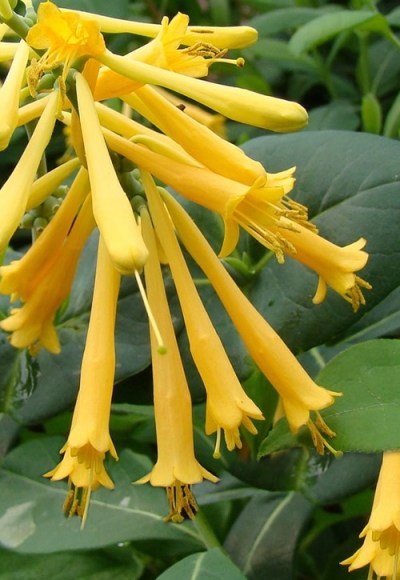 Lonicera sempervirens (commonly known as coral honeysuckle, trumpet honeysuckle, or scarlet honeysuckle) is a species of honeysuckle vine native to the eastern United States which is known for its reddish flowers.
Lonicera sempervirens (commonly known as coral honeysuckle, trumpet honeysuckle, or scarlet honeysuckle) is a species of honeysuckle vine native to the eastern United States which is known for its reddish flowers.
But John Clayton Honeysuckle Vine (Lonicera sempervirens family sulphurea 'John Clayton') is a selectioned evergreen flowering vine with yellow flowers, which attract birds, butterflies and hummingbirds.
The best of the yellow flowering honeysuckle John Clayton is a North American native that was found in woodlands on the grounds of a 17th century church in Gloucester, Virginia. Not only does it produce loads of fragrant bright, creamy yellow flowers in spring, this variety is also prized for its tendency to rebloom through summer.
This vine is a fine addition to yellow theme gardens, native plant gardens, cottage gardens and fragrance gardens. Definitely John Clayton honeysuckle is a must for hummingbird gardens. It is ideal for use to climb along the top of fences, on a trellis, on a mailbox or pole, over an arch, arbor or pergola, or any other structure that will provide something for the vines to twine around.
John Clayton vine also has a more compact growth habit (to only 12 feet height/length) and an inedible, red berries show up in late summer and early fall which attract birds. It is not invasive like Japanese honeysuckle. This vine does not cling to walls and other surfaces, however, it will grow up and on just about anything that provides its twining vines something to twine around.
John Clayton Honeysuckle vine produces more flowers and is more vigorous in full sun, where it covered a 10 foot wide section of 4 feet high chain link fence in our gardens in just a few years.
John Clayton Yellow Honeysuckle Vine @ wikipedia.
